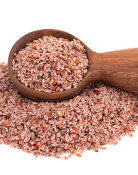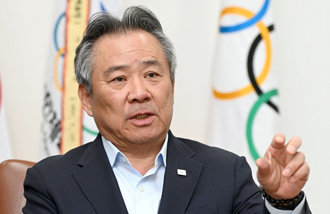Two Rulers in Russia
As Russia is set to re-enter diarchy with both President-elect Dmitry Medvedev and President Vladimir Putin in power, public attention is now on which one will grab superior power.
The Central Election Commission of Russia announced on March 3 that Deputy Prime Minister Medvedev was elected as Russias 5th president. The presidential election was held on March 2. As of 10:00 a.m., when 99 percent of ballots had been counted, Medvedev had 70.2 percent of the vote. At that moment, other candidates, Gennady Zyuganov, Communist Party head, and Vladimir Zhirinovsky, chairman of the Liberal Democratic Party, only garnered 17.7 percent and 9.3 percent of votes, respectively.
Medvedev, who is hand-picked by Putin as his successor, will take office on May 7 and is likely to appoint Putin as his prime minister.
Experts on Russian affairs diagnosed that high-ranking officials of the Kremlin line are finding themselves in a dilemma of with whom to take side in this unprecedented situation where the administration will have two rulers.
Entrepreneurs close to the Kremlin are also finding it hard to figure out with which side they will form connections between President Putin or the next president.
Diplomats in Moscow are also watching how the situation unfolds, not knowing after May 7 who would have protocol priority and who would make final decisions.
The confusion comes from the fact that nothing has been disclosed about how the power will be divided between President Putin who will become prime minister and President-elect Medvedev.
Medvedev appeared at a concert in Red Square, Moscow, on the election day along with Putin and said, We will be able to preserve the course of President Putin. Meanwhile Putin repeatedly emphasized that the president has the highest power according to the constitution.
But few experts predict that Putin will be satisfied as Kremlins second-in-command after putting Russia on the 7-8 percent annual growth track during his eight years in office.
Experts offer three ways of power division. In the first scenario, Putin maintains the highest power even after he becomes the prime minister. Natalya Babayeva, a political critic in Moscow, said, If the highest power is handed over to the prime minister, the next problem would be to what extent the current core figures of the Kremlin should pay respect to the new president.
The second scenario is that Putin and Medvedev will exercise the same level of power. But legal academics all agree that such a bisection of power is not possible under the Russian constitution.
The last scenario also drawing much attention is that a completely new ground of power will be established. In this case, those belonging to a newly emerging group, such as Medvedev`s campaign chief Sergei Sobyanin, are likely to occupy the key positions in the Kremlin while the political reform proceeds. The biggest variable to a smooth power shift would be how well the new president calms down the opposition raised by the Siloviki faction (composed of former members of the intelligence agency, the army and police) such as Igor Sechin, deputy chief of staff in the Kremlin.
The Russian politics has depended a great deal on the personal leadership of the president rather than the system, said Babayeva. There is a possibility that the two leaders will divide the power in a delicate way and form a relationship which is vertical and horizontal at the same time.
viyonz@donga.com
Headline News
- ‘Literature class with Han Kang’s writing for 10 years,’ says Oxford professor
- Gold price reaches new record high
- Moon Da-hye appears at police after drunk driving accident
- N. Korea redefines S. Korea as ‘hostile state’ in revised constitution
- Samsung develops graphic DRAM with industry-leading capacity and speed







